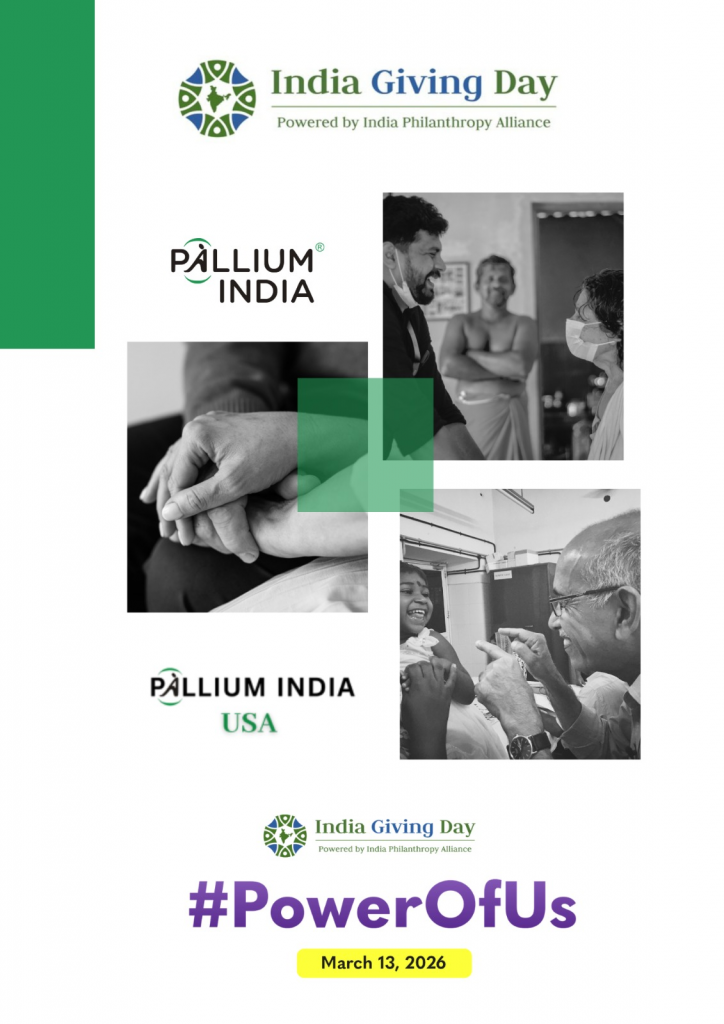Strong Statement from the UN Special Rapporteur on Torture
Pallium India had the privilege of being a participant at an expert meeting on “Torture and ill-treatment in healthcare settings” at the Center for Human Rights and Humanitarian Law, American University in Washington, DC on 13-14 December 2012.
The Rapporteur’s report has come out now, with strong wording on access to pain relief. Here is the relevant part of the report:
C. Denial of pain treatment
51. In 2012, WHO estimated that 5.5 billion people live in countries with low or no access to controlled medicines and have no or insufficient access to treatment for moderate to severe pain.53 Despite the repeated reminders made by the Commission on Narcotic Drugs to States of their obligations,54 83 per cent of the world population has either no or inadequate access to treatment for moderate to severe pain. Tens of millions of people, including around 5.5 million terminal cancer patients and 1 million end-stage HIV/AIDS patients, suffer from moderate to severe pain each year without treatment.
52. Many countries fail to make adequate arrangements for the supply of these medications.56 Low- and middle-income countries account for 6 per cent of morphine use worldwide while having about half of all cancer patients and 95 per cent of all new HIV infections.57 Thirty-two countries in Africa have almost no morphine available at all.58 In the United States, over a third of patients are not adequately treated for pain.59 In France, a study found that doctors underestimated pain in over half of their AIDS patients.60 In India, more than half of the country‟s regional cancer centres do not have morphine or doctors trained in using it. This is despite the fact that 70 per cent or more of their patients have advanced cancer and are likely to require pain treatment.61
53. Although relatively inexpensive and highly effective medications such as morphine and other narcotic drugs have proven essential “for the relief of pain and suffering”62, these types of medications are virtually unavailable in more than 150 countries.63 Obstacles that unnecessarily impede access to morphine and adversely affect its availability include overly restrictive drug control regulations64 and, more frequently, misinterpretation of otherwise appropriate regulations;65 deficiency in drug supply management; inadequate infrastructure;66 lack of prioritization of palliative care67; ingrained prejudices about using opioids for medical purposes;68 and the absence of pain management policies or guidelines for practitioners.69
Applicability of torture and ill-treatment framework
54. Generally, denial of pain treatment involves acts of omission rather than commission,70 and results from neglect and poor Government policies, rather than from an intention to inflict suffering. However, not every case where a person suffers from severe pain but has no access to appropriate treatment will constitute cruel, inhuman, or degrading treatment or punishment. This will only be the case when the suffering is severe and meets the minimum threshold under the prohibition against torture and ill-treatment; when the State is, or should be, aware of the suffering, including when no appropriate treatment was offered; and when the Government failed to take all reasonable steps71 to protect individuals‟ physical and mental integrity.72
55. Ensuring the availability and accessibility of medications included in the WHO Model List of Essential Medicines is not just a reasonable step but a legal obligation under the Single Convention on Narcotic Drugs, 1961. When the failure of States to take positive steps, or to refrain from interfering with health-care services, condemns patients to unnecessary suffering from pain, States not only fall foul of the right to health but may also violate an affirmative obligation under the prohibition of torture and ill-treatment (A/HRC/10/44 and Corr.1, para. 72).
56. In a statement issued jointly with the Special Rapporteur on the right to health, the Special Rapporteur on the question of torture reaffirmed that the failure to ensure access to controlled medicines for the relief of pain and suffering threatens fundamental rights to health and to protection against cruel, inhuman and degrading treatment. Governments must guarantee essential medicines – which include, among others, opioid analgesics – as part of their minimum core obligations under the right to health, and take measures to protect people under their jurisdiction from inhuman and degrading treatment.73






